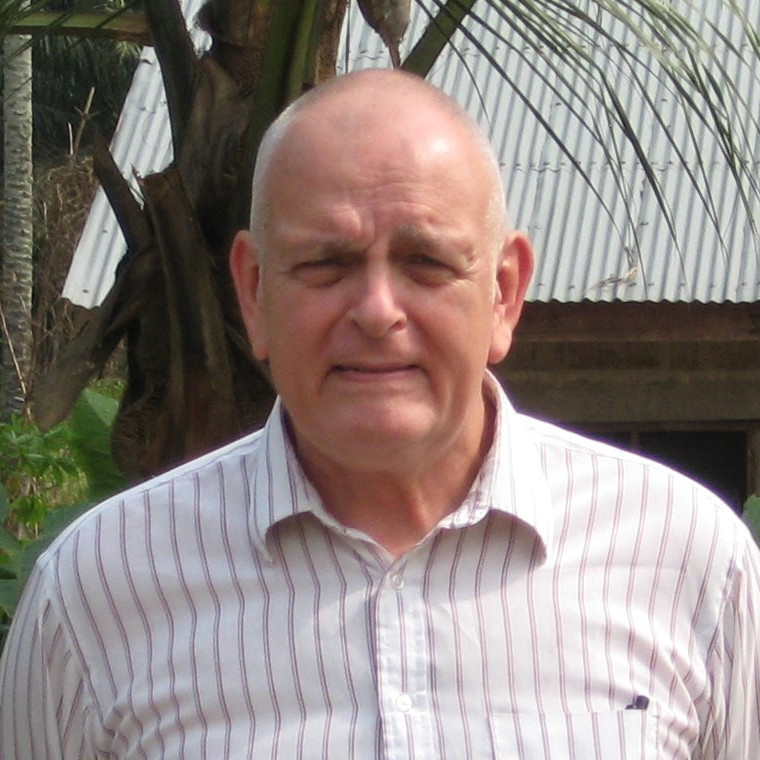From the Field – Liberian Mission History – Feb. 14, 2018
We have to admit that we build on the shoulders of others as we do outreach. Even though the original Lutheran mission work in Liberia was not by us or the synods our people belonged to, we look at the examples of those who have gone before. We have much to learn. Following is a chronology and brief history of Pastor and Mrs. Day.
Chronology:
•1851: David is born born near Dillsburg, Pennsylvania.
•1853: Emily (Emma) Virginia Winegarden born in Pennsylvania(?)
•1864-65: David serves eight-month enlistment in the Army of the Potomac.
•1869: David enters the Missionary Institute (now Susquehanna University).
•1874: David ordained by the Franckean Synod, he and Emily Winegarden marry, and they leave for the Muhlenberg Mission on the St. Paul River near Monrovia, Liberia.
•1877: son Gilbert dies in Liberia.
•1878: daughter Florence dies in Liberia.
•1879: David and Emily return to the United States on furlough.
•1883: David and Emily return to the United States on furlough.
•1885: mission’s first African pastor licensed.
•1887: a new congregation at Jahweh Jai established.
•1889: a new congregation in Ben Moore’s town established.
•1890: daughter Leila dies in Liberia.
•1892: second Liberian, David Davidson, licensed to the Gospel ministry.
•1893: David returns to the United States on furlough and travels widely lecturing.
•1894: Emma returns to the United States for reasons of health.
•1895: Emma dies in Lewisburg, Pennsylvania of “African fever.”
•1897: David marries Anna E. Whitfield, a missionary nurse to West Africa.
•1897: stricken with “African fever,” David leaves Liberia for England in October; then sails for New York in December but dies at sea on Dec. 17; funeral services at First Lutheran Church in Baltimore on 21 Dec. and at Trinity Lutheran Church in Selinsgrove, Pennsylvania, on 22 Dec., where he was buried with Emma.
Pastor and Mrs. David Day
From the Muhlenberg Mission in Liberia comes this report at the end of the life of Pastor and wife.
Of like spirit, too, was Mrs. Day, his helpmate and untiring worker in the mission for more than twenty years, and who preceded him to the celestial world by two years and four months. Only a short time before her death she, with undaunted faith and Spartan courage, so weak she could hardly wield her pen, wrote to her husband, standing like the hero he was, in his place at the front, “Do not come home, Stay where you are. Africa needs you more than I do.” Taking all the circumstances into consideration, few mortal lips ever gave utterance to braver and more heroic words—words that sounded the very depth of a self-sacrificing and heroic devotion to the Master’s cause.
No wonder that she, too, with her husband, was enshrined in the hearts of the people for whom she had so faithfully labored. When the great sorrow of his life came to Dr. Day the little children in the mission soon learned the nature of the sad news from America. Gathering a bunch of snow-white lilies they placed them in the hands of one of their number, a little girl, who bore them to his room, silently laid them at his feet, and then humbly kneeling before him kissed his feet and quietly withdrew without speaking a single word.
The dying message of Mrs. Day is equaled only by the words which, at one time, were thought to be the last utterance of Dr. Day. “Close up the ranks—more men wanted—close up.” These utterances of Dr. and Mrs. Day are worthy of being engraved not simply on the marble tomb that marks their last resting place, but on the living, pulsating, consecrated heart of the Church which they loved and served so well. With such examples of courage and consecration before us no one should hesitate to do his part in carrying forward the work to which they devoted their lives.
“The pitying Christ Himself, with heart of love,’
Is loudly calling through the Spirit’s power:
The sound is world-wide, but the few alone
Have ears attuned to catch the trumpet-tone;
The rest, unheeding, seek for earthly dower,
Nor care for treasures stored above.
“If eyes could pierce, as did the seer of old,
The veil that dimly shuts our vision in,
The fiery chariots of a heavenly host
Would greet our gaze, equipped to guard each post
Where trusting hearts dare all to lead from sin
God’s bleeding lambs into His fold.
“And still brave men are waiting, doubting God,
And weakly pleading: ‘Ah! it costs too much.’
Too much, when every soul that tastes death’s sting
Is worth the mighty ransom of a king?
Too much, when Christ gave all to rescue such,
And bids us follow where He trod?
“Oh! that the Church of God might rouse from ease,
Cast off her robes of state” might grandly move
Impetuous to the mighty fray, and girt
With Christ’s own presence, fear not loss nor hurt.
‘Tis he who loses life below to please
His King, wins life with Him above.”
The question may be asked, “What is the secret of such a life as the one here under review? What molding influence, what shaping hand, what transforming power wrought this miracle? Who was it that took the poor, homeless, ragged, bare-foot boy, crying himself to sleep under a horse blanket in a livery stable, and set him high up on a pedestal of loving hearts as a recognized Mission Hero of His Church? Only He could work such a miracle, by His saving grace and renewing power, Who Himself was born in a stable and cradled in a manger.

